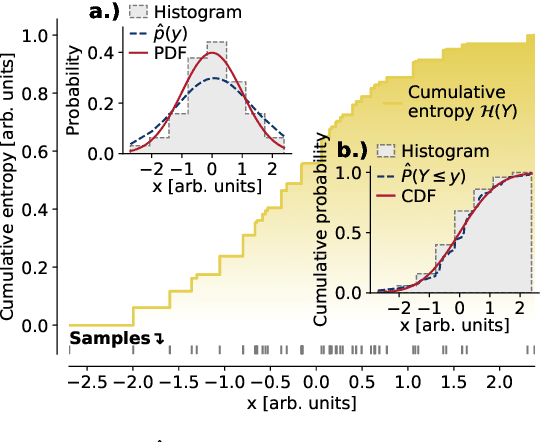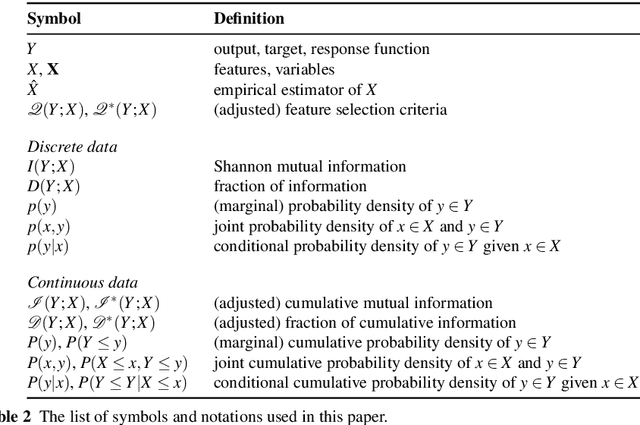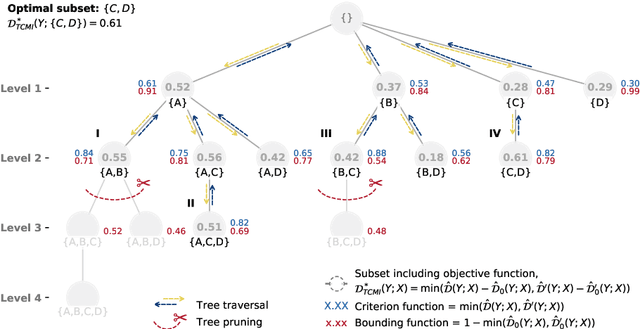TCMI: a non-parametric mutual-dependence estimator for multivariate continuous distributions
Paper and Code
Jan 30, 2020



The identification of relevant features, i.e., the driving variables that determine a process or the property of a system, is an essential part of the analysis of data sets whose entries are described by a large number of variables. The preferred measure for quantifying the relevance of nonlinear statistical dependencies is mutual information, which requires as input probability distributions. Probability distributions cannot be reliably sampled and estimated from limited data, especially for real-valued data samples such as lengths or energies. Here, we introduce total cumulative mutual information (TCMI), a measure of the relevance of mutual dependencies based on cumulative probability distributions. TCMI can be estimated directly from sample data and is a non-parametric, robust and deterministic measure that facilitates comparisons and rankings between feature sets with different cardinality. The ranking induced by TCMI allows for feature selection, i.e., the identification of the set of relevant features that are statistical related to the process or the property of a system, while taking into account the number of data samples as well as the cardinality of the feature subsets. We evaluate the performance of our measure with simulated data, compare its performance with similar multivariate dependence measures, and demonstrate the effectiveness of our feature selection method on a set of standard data sets and a typical scenario in materials science.
 Add to Chrome
Add to Chrome Add to Firefox
Add to Firefox Add to Edge
Add to Edge